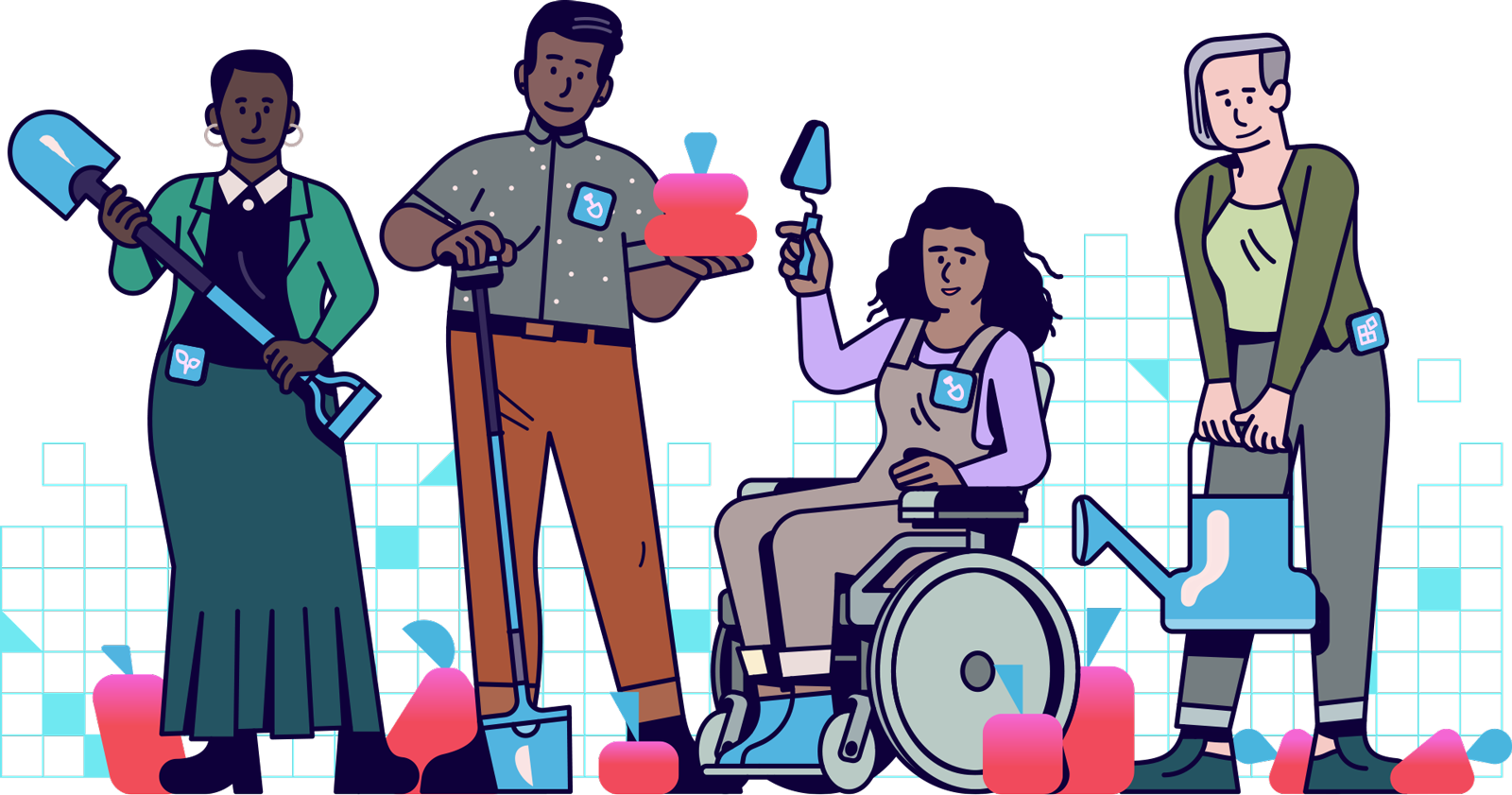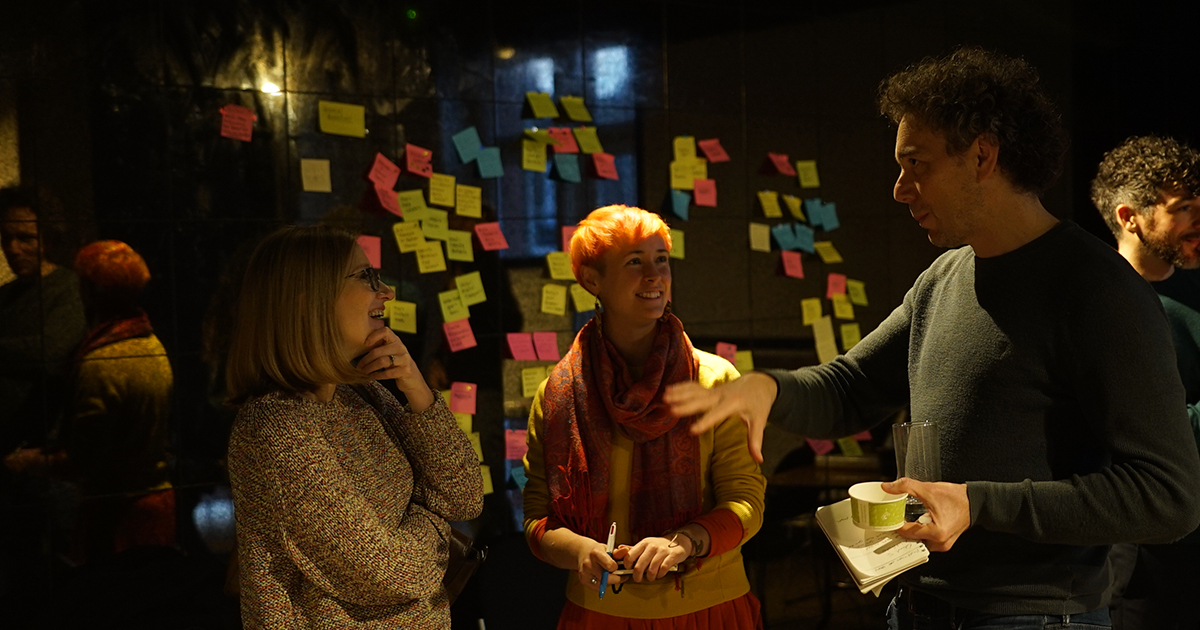
Earlier this year, Downing Street commissioned a report on how civil society could be strengthened. The report has a welcome emphasis on data, digital and community networks. We look at the recommendations.
Last week, Danny Kruger, Conservative MP for Devizes, released his long-awaited report with recommendations about the future of civil society.
The report, entitled Levelling up our communities: proposals for a new social covenant, was commissioned at the request of Number Ten, which asked Kruger to look into “proposals to sustain the community spirit we saw during lockdown”.
Kruger is a longtime expert in our sector, having founded and run his own criminal justice charity, Only Connect, which later merged into the social enterprise Catch 22. He was the author of the government’s civil society strategy published in 2018 under Tracey Crouch, the predecessor to Baroness Barran as charities minister.
The report contains several proposals which are to be welcomed. A number fall within Catalyst’s core areas – digital, service design, and better use of data. There is particular emphasis on the last of these, including using data as a tool to measure and understand the value of civil society. Perhaps the most important recommendation is to change the way the Office for National Statistics (ONS) measures civil society.
A number of other recommendations are outside Catalyst’s direct area of interest, but are nonetheless still worth flagging for their impact on civil society as a whole. It remains unclear how many of these recommendations will be taken up by the Government however, or the timeframe for implementing them.
Proposals on digital, data and design
The power of digital technology and better use of data are key themes in Danny Kruger’s report.
“The experience of the recent crisis - the willingness of local people to step forward and collaborate, the flexibility shown by public services and the social commitment of businesses - shows what is possible,” he wrote to the prime minister.
“Add the extraordinary new dynamics of data and digital innovation, and a wholly new paradigm is possible in which community power replaces the dominance of remote public and private sector bureaucracies.”
Kruger’s core theme is that if we understand better what civil society brings to the table, then charities and other organisations can better contribute to society. He sees central government as holding too much hierarchical control, and he wants to use digital technology to enable individuals to connect to one another more freely without institutions getting in the way.
To this end, he focuses heavily on measurement – how do we establish what charities and others actually contribute?
Perhaps the most important recommendation is to change the way the ONS measures civil society.
At present, the UN recommends methods of measuring the contribution of the social economy, but this is not currently applied by the ONS, which cites resource constraints. At Catalyst, one of our core activities is to support work on setting up a data collective, to develop better shared understanding of data on civil society, and we fully support the ambition of Pro Bono Economics and others in this regard.
We believe that if the contribution of civil society is not properly measured and understood, government will continue to undervalue charities and other similar organisations, and not develop appropriate policies and financial interventions to create an enabling environment for our sector.
Another key recommendation is the development of standards of government reporting, with grants published to 360Giving data standard, and for datalabs to be established in each government department, inspired by the success of the Justice Data Lab.
A third is that we set better and more consistent standards for reporting charities’ own outcomes.
This is an area which is not without its challenges, most notably producing data which is consistent and meaningful, in a way which is not extremely financially arduous, across an incredibly diverse and often volunteer-led sector.
Nonetheless, we believe those are challenges worth meeting. At present our understanding of what charities do, where, and how that contributes to and complements other efforts, is very limited, based on case studies and patchy data. We can see the difference that charities make in people’s lives every day, but we cannot demonstrate that impact easily.
The report also focuses on the important issues of digital exclusion, and persuading tech companies to engage more with social issues. This is also a key theme which Catalyst is working towards, and where we would be extremely keen to see the government make progress.
The report says: “ The government is working out how to tax and regulate the giants of the internet. As part of the emerging settlement with these firms I suggest a very explicit request for their help with the challenges and opportunities of civil society. Big tech should be persuaded to provide, for free, the wiring of our social infrastructure. They could contribute expertise and resources to the challenges of data, referenced above; they could help with the digital innovations that are connecting volunteers and funders and charities.”
This, too, is a major area of interest to Catalyst, and one where we are keen to see more discussion involving all parties.
Other issues
The report contains a number of other welcome recommendations to strengthen charities’ ability to support communities, and the ability of communities to connect with one another. Catalyst is a strong believer in the power of networks and communities to make a difference, and the power of digital to provide new links between members of communities. These measures, taken together, represent a welcome push towards greater devolution of power.
It is also extremely welcome to see the report recommend the commitment of £2bn of funds currently held in dormant assets, and another £500m currently held in the National Fund, a 100-year-old charity which has never spent any money on charitable activities, which would go some way to addressing the billions of pounds lost by charities as a result of lockdown.
What now?
The original request from Number Ten focused on fostering community spirit, and there is a sense that it was hoping for a series of simple interventions. Instead, it has received a thorough report with a heavy focus on data. We believe that better ONS measurement of charities will yield significant results, allow the Treasury to better understand how value is generated for UK citizens, and give us better tools to build a better world. But there are certainly interventions with more immediate popular appeal.
This report is a significant step – an MP close to the government who cares about the role of charities and knows what it’s like to run one, recognising the importance of many of the interventions the sector has been calling for. But it is also clear from Number Ten’s response that further steps will be needed to make progress in this direction.
More work is taking place that complements Danny Kruger’s report. The charity Pro Bono Economics is stepping up its research in this area, supported by Gus O’Donnell, former cabinet secretary, and Andy Haldane, chief economist of the Bank of England. And we anticipate our own work on establishing a data collective to gather information within the sector will also significantly support this.
The need for better data on civil society is increasingly widely recognised, and the movement to see it collected is growing.
Photo by Jordhan Madec on Unsplash
Last week, Danny Kruger, Conservative MP for Devizes, released his long-awaited report with recommendations about the future of civil society.
The report, entitled Levelling up our communities: proposals for a new social covenant, was commissioned at the request of Number Ten, which asked Kruger to look into “proposals to sustain the community spirit we saw during lockdown”.
Kruger is a longtime expert in our sector, having founded and run his own criminal justice charity, Only Connect, which later merged into the social enterprise Catch 22. He was the author of the government’s civil society strategy published in 2018 under Tracey Crouch, the predecessor to Baroness Barran as charities minister.
The report contains several proposals which are to be welcomed. A number fall within Catalyst’s core areas – digital, service design, and better use of data. There is particular emphasis on the last of these, including using data as a tool to measure and understand the value of civil society. Perhaps the most important recommendation is to change the way the Office for National Statistics (ONS) measures civil society.
A number of other recommendations are outside Catalyst’s direct area of interest, but are nonetheless still worth flagging for their impact on civil society as a whole. It remains unclear how many of these recommendations will be taken up by the Government however, or the timeframe for implementing them.
Proposals on digital, data and design
The power of digital technology and better use of data are key themes in Danny Kruger’s report.
“The experience of the recent crisis - the willingness of local people to step forward and collaborate, the flexibility shown by public services and the social commitment of businesses - shows what is possible,” he wrote to the prime minister.
“Add the extraordinary new dynamics of data and digital innovation, and a wholly new paradigm is possible in which community power replaces the dominance of remote public and private sector bureaucracies.”
Kruger’s core theme is that if we understand better what civil society brings to the table, then charities and other organisations can better contribute to society. He sees central government as holding too much hierarchical control, and he wants to use digital technology to enable individuals to connect to one another more freely without institutions getting in the way.
To this end, he focuses heavily on measurement – how do we establish what charities and others actually contribute?
Perhaps the most important recommendation is to change the way the ONS measures civil society.
At present, the UN recommends methods of measuring the contribution of the social economy, but this is not currently applied by the ONS, which cites resource constraints. At Catalyst, one of our core activities is to support work on setting up a data collective, to develop better shared understanding of data on civil society, and we fully support the ambition of Pro Bono Economics and others in this regard.
We believe that if the contribution of civil society is not properly measured and understood, government will continue to undervalue charities and other similar organisations, and not develop appropriate policies and financial interventions to create an enabling environment for our sector.
Another key recommendation is the development of standards of government reporting, with grants published to 360Giving data standard, and for datalabs to be established in each government department, inspired by the success of the Justice Data Lab.
A third is that we set better and more consistent standards for reporting charities’ own outcomes.
This is an area which is not without its challenges, most notably producing data which is consistent and meaningful, in a way which is not extremely financially arduous, across an incredibly diverse and often volunteer-led sector.
Nonetheless, we believe those are challenges worth meeting. At present our understanding of what charities do, where, and how that contributes to and complements other efforts, is very limited, based on case studies and patchy data. We can see the difference that charities make in people’s lives every day, but we cannot demonstrate that impact easily.
The report also focuses on the important issues of digital exclusion, and persuading tech companies to engage more with social issues. This is also a key theme which Catalyst is working towards, and where we would be extremely keen to see the government make progress.
The report says: “ The government is working out how to tax and regulate the giants of the internet. As part of the emerging settlement with these firms I suggest a very explicit request for their help with the challenges and opportunities of civil society. Big tech should be persuaded to provide, for free, the wiring of our social infrastructure. They could contribute expertise and resources to the challenges of data, referenced above; they could help with the digital innovations that are connecting volunteers and funders and charities.”
This, too, is a major area of interest to Catalyst, and one where we are keen to see more discussion involving all parties.
Other issues
The report contains a number of other welcome recommendations to strengthen charities’ ability to support communities, and the ability of communities to connect with one another. Catalyst is a strong believer in the power of networks and communities to make a difference, and the power of digital to provide new links between members of communities. These measures, taken together, represent a welcome push towards greater devolution of power.
It is also extremely welcome to see the report recommend the commitment of £2bn of funds currently held in dormant assets, and another £500m currently held in the National Fund, a 100-year-old charity which has never spent any money on charitable activities, which would go some way to addressing the billions of pounds lost by charities as a result of lockdown.
What now?
The original request from Number Ten focused on fostering community spirit, and there is a sense that it was hoping for a series of simple interventions. Instead, it has received a thorough report with a heavy focus on data. We believe that better ONS measurement of charities will yield significant results, allow the Treasury to better understand how value is generated for UK citizens, and give us better tools to build a better world. But there are certainly interventions with more immediate popular appeal.
This report is a significant step – an MP close to the government who cares about the role of charities and knows what it’s like to run one, recognising the importance of many of the interventions the sector has been calling for. But it is also clear from Number Ten’s response that further steps will be needed to make progress in this direction.
More work is taking place that complements Danny Kruger’s report. The charity Pro Bono Economics is stepping up its research in this area, supported by Gus O’Donnell, former cabinet secretary, and Andy Haldane, chief economist of the Bank of England. And we anticipate our own work on establishing a data collective to gather information within the sector will also significantly support this.
The need for better data on civil society is increasingly widely recognised, and the movement to see it collected is growing.
Photo by Jordhan Madec on Unsplash

Support & services
Our free services help you make the right decisions and find the right support to make digital happen.
Learn what other non-profits are doing
39+ organisations share 50+ Guides to how they use digital tools to run their services. Visit Shared Digital Guides.

CAST and Catalyst: the journey, the transition - and beyond






